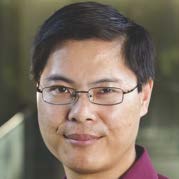檢測到您當前使用浏覽器版本過于老舊,會導緻無法正常浏覽網站;請您使用電腦裡的其他浏覽器如:360、QQ、搜狗浏覽器的極速模式浏覽,或者使用谷歌、火狐等浏覽器。
 下載Firefox
下載Firefox
檢測到您當前使用浏覽器版本過于老舊,會導緻無法正常浏覽網站;請您使用電腦裡的其他浏覽器如:360、QQ、搜狗浏覽器的極速模式浏覽,或者使用谷歌、火狐等浏覽器。
 下載Firefox
下載Firefox
Abstract: Fine spatiotemporal regulation of biochemical activities within cells is essential for the execution of complex functions like directed migration and intercellular communication. My lab creates genetically encoded tools to sense and control biochemical events with spatial and temporal specificity. In one example, I will describe the development and application of TimeSTAMP to reveal dysregulation of protein synthesis pathways in neurons a model of mental retardation. In a second example, I will describe the design, engineering, and validation of single-chain photoswitchable proteins, and their use to reveal previously unknown biochemical responses downstream of kinases and GTPases.

Dr. Lin is an Associate Professor at Department of Neurobiology, Stanford University. Dr. Lin’s lab applies biochemical and engineering principles to the development of protein-based tools for imaging and control of biochemical processes. Topics of investigation include fluorescent proteins structure and biophysics, fluorescent protein-based biosensors, neuronal activity sensors, spatiotemporal analysis of protein translation pathways, chemical control of protein translation, and light-responsive proteins.
歡迎各位老師同學積極參加!